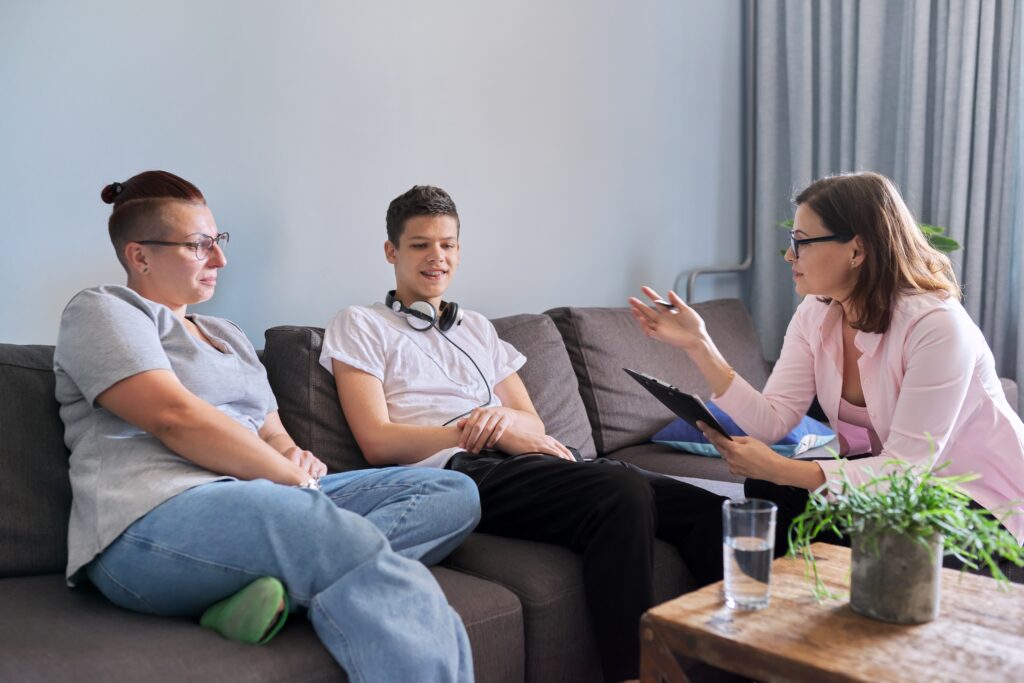A young adult with special needs and behavior problems often faces unique challenges when transitioning into adulthood. Whether they struggle with emotional regulation, social interactions, or daily life skills, their families are frequently left searching for the right support. Without the proper resources, these young adults may experience setbacks in their journey toward independence, making it crucial to address their specific needs with a structured approach.
The reality is that millions of families across the U.S. are navigating this journey. According to the CDC, approximately one in six children has a developmental disability, and as they grow older, the need for specialized programs only increases. Yet, many families feel unprepared to help their child manage behavioral difficulties while also fostering self-sufficiency.
If you’re a parent or caregiver looking for ways to help a young adult with special needs with behavior problems, this guide will explore seven essential strategies. These approaches, ranging from skill development to mental health support, provide the foundation for a successful and fulfilling transition into adulthood.
Comprehensive Assessment and Individualized Planning
A one-size-fits-all approach does not work for young adults with special needs and behavior problems. Each person has unique strengths and struggles, which is why a comprehensive assessment is the first and most crucial step. This involves gathering input from parents, educators, therapists, and medical professionals to build an accurate picture of their needs.
A strong individualized plan should include:
- Behavioral assessments to identify triggers and patterns in problematic behaviors.
- Cognitive and developmental evaluations to pinpoint areas that need additional support.
- Personalized goal-setting that includes both short-term and long-term milestones.
Parents and caregivers should work closely with professionals to ensure these plans are flexible and adaptable. As the young adult grows and gains more skills, their plan should evolve accordingly. A well-structured, individualized roadmap is essential for guiding them toward greater independence.
Skill Development for Independence

For a young adult with special needs and behavior problems, learning independent living skills is a key factor in their success. Many struggle with executive functioning, meaning tasks that involve managing time, following a schedule, or making decisions can be overwhelming.
To build independence, focus on:
- Daily living skills: Cooking, cleaning, and hygiene routines should be taught with step-by-step guidance.
- Money management: Budgeting, shopping, and understanding the value of money are essential for independent living.
- Time and task management: Using planners, alarms, and visual schedules can help them stay organized.
The goal is not only to teach these skills but to reinforce them consistently. Practicing them in real-world settings, such as grocery shopping or taking public transportation, ensures these lessons are practical and long-lasting.
Behavioral Interventions and Support
Many young adults with special needs and behavior problems require structured interventions to help manage emotional regulation and impulsivity. Left unaddressed, these challenges can lead to difficulties in school, work, or social settings.
Effective behavioral support includes:
- Applied Behavior Analysis (ABA): A research-backed therapy that helps reduce problem behaviors and reinforce positive ones.
- Cognitive-behavioral strategies: Teaching coping mechanisms, emotional regulation, and problem-solving skills.
- Consistent reinforcement: Providing rewards for positive behaviors and having clear consequences for negative actions.
Caregivers, teachers, and employers should be trained in these strategies to ensure a consistent and supportive environment across all settings. The more predictable and structured the approach, the more successful the young adult will be in managing their behavior.
Educational and Vocational Training
A young adult with special needs and behavior problems benefits greatly from personalized educational pathways that accommodate their learning style. Many traditional schooling environments are not designed to support neurodiverse individuals, making alternative education or vocational training critical.
Key components of effective education and job training include:
- Specialized learning programs: Schools with smaller class sizes, modified curricula, and individualized instruction.
- Vocational training: Hands-on programs that teach practical job skills, such as working in a trade, customer service, or technology.
- Internships and job coaching: Real-world experience with the support of mentors who can guide them through workplace expectations.
Encouraging them to explore different careers based on their interests and abilities helps foster motivation and self-confidence. Employers who provide structured support can help young adults thrive in the workforce.
Social Skills Development
Social interaction is often one of the biggest hurdles for a young adult with special needs and behavior problems. Difficulties in understanding social cues, making friends, or handling group settings can lead to isolation and frustration.
To help build social confidence, young adults should:
- Participate in structured social skills programs that focus on role-playing and real-life scenarios.
- Engage in community activities like sports, art classes, or volunteering to encourage positive interactions.
- Learn conflict resolution skills to handle misunderstandings and disagreements effectively.
Technology can also play a role—apps and online communities designed for neurodiverse individuals can offer safe spaces to practice social skills in a comfortable setting.
Mental Health Support

Anxiety, depression, and emotional distress are common among young adults with special needs. These individuals often face higher levels of stress due to difficulties in communication, socialization, and daily functioning.
Essential mental health support strategies include:
- Regular counseling and therapy sessions to provide guidance and emotional regulation techniques.
- Mindfulness and relaxation practices such as meditation, breathing exercises, or sensory-friendly environments.
- Medication management under the supervision of a qualified psychiatrist.
Creating a safe, non-judgmental space where they can express their feelings openly helps them build resilience and emotional well-being.
Family Involvement and Support
Families play a vital role in the success of a young adult with special needs and behavior problems. Without proper support, caregivers may feel overwhelmed and unsure of how to best assist their loved one.
Ways to strengthen family involvement include:
- Parent training workshops that teach strategies for handling behavioral challenges.
- Support groups where families can connect, share experiences, and learn from one another.
- Respite care services to give caregivers much-needed breaks and prevent burnout.
A strong family support system ensures that the young adult receives encouragement and consistency, making their transition into adulthood much smoother.
How Can New Directions for Young Adults Help You?
Navigating the complexities of helping a young adult with special needs and behavior problems can feel overwhelming, but you don’t have to do it alone. At New Directions for Young Adults, we specialize in providing individualized support that promotes independence, confidence, and success.
Address: 3275 W Hillsboro Blvd #110, Deerfield Beach, FL 33442
Phone: (954) 571-5102
Our expert team offers comprehensive assessments, life skills training, behavioral interventions, vocational programs, and social development strategies designed to help young adults thrive. Whether you need assistance with education, employment, mental health, or daily living skills, we are here to guide you every step of the way.
Contact us today to learn how we can help your family on this journey!
Frequently Asked Questions
How can Circle of Friends help young adults with special needs?
A Circle of Friends is a support network involving peers and facilitators to promote social inclusion and interaction for individuals with disabilities. This approach can help young adults with special needs develop meaningful relationships and improve social skills.
How does Positive Behavior Support (PBS) differ from traditional behavior management strategies?
PBS focuses on understanding the reasons behind challenging behaviors and uses proactive strategies to teach alternative behaviors, aiming to improve the individual’s quality of life rather than solely trying to eliminate undesirable behaviors.
What are Positive Behavior Interventions and Supports (PBIS), and how are they implemented in schools?
PBIS is a framework used in schools to promote positive behavior through proactive strategies and support at multiple levels, including school-wide, targeted group, and individualized interventions.
How can families support the mental health of young adults with special needs?
Families can support mental health by creating a safe, non-judgmental space for open communication, seeking regular counseling or therapy, and encouraging mindfulness and relaxation practices.




